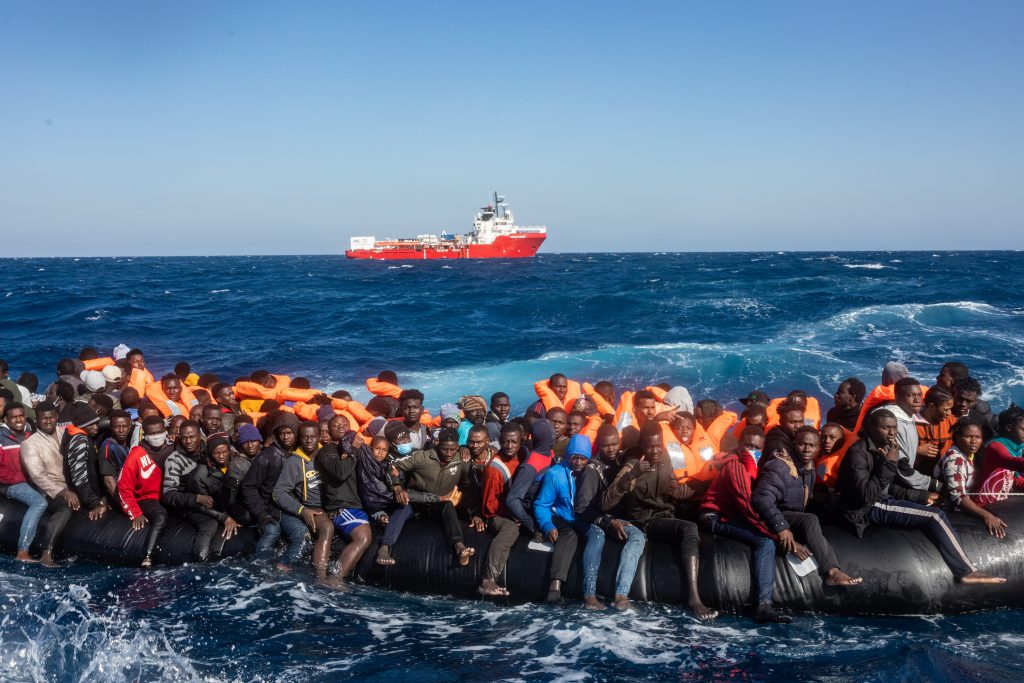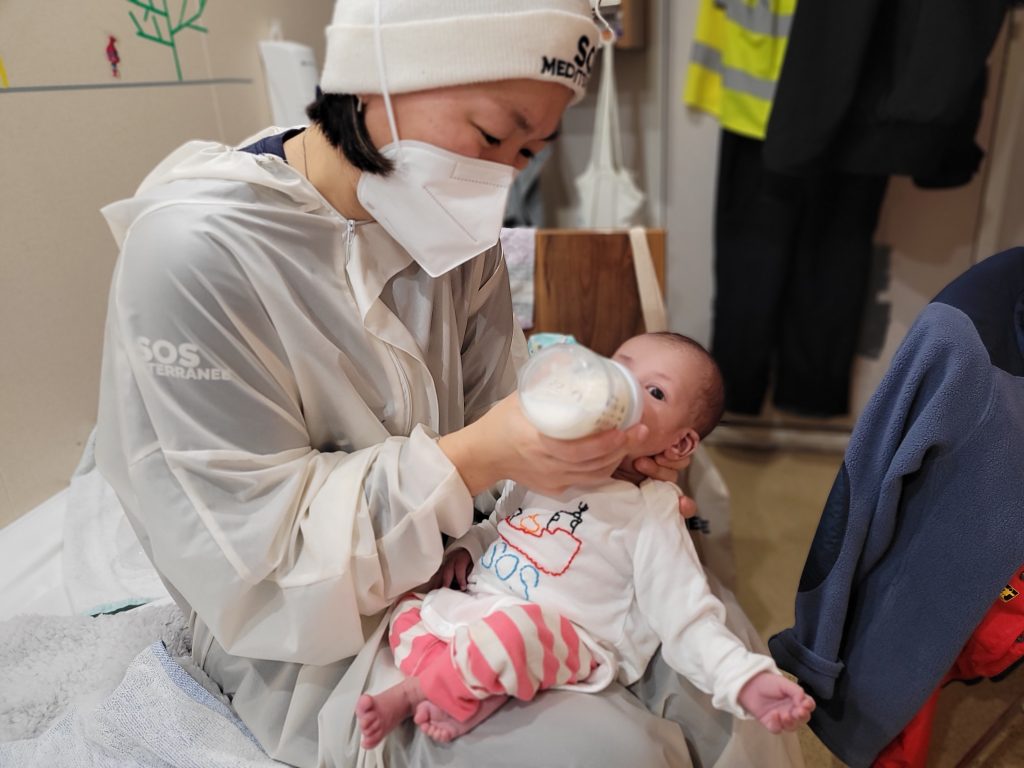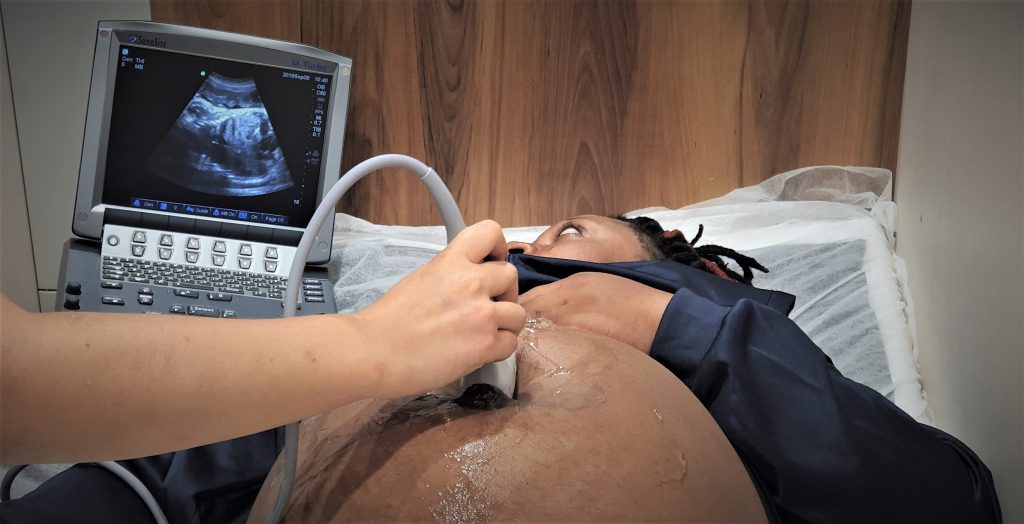Fabienne Lassalle is Deputy Managing Director of the sea rescue NGO SOS MEDITERRANEE France. A graduate of IEP Grenoble and holder of a Master's degree in Development, Cooperation and Humanitarian Action (Panthéon-Sorbonne University), Fabienne Lassalle has coordinated development projects financed by international donors - European Commission, World Bank, Regional Development Banks - in Africa, Asia and Latin America. In 2015, she took part in the creation of the SOS MEDITERRANEE association, becoming its deputy director. SOS MEDITERRANEE is a European civil association whose mission is to save lives in the Mediterranean Sea, protect survivors on board its rescue ship and bear witness to the situation at sea and the many faces of migration.
SOS MEDITERRANEE is a European, civilian sea rescue organization, created in 2015. Initially, we wanted to create a European association, but the statute didn’t exist. So we set up associations in several countries, and today we are present in France, Italy, Germany and Switzerland.
SOS MEDITERRANEE was created in response to the drama unfolding in the Mediterranean Sea, where hundreds of people are trying to cross to escape the horror they are experiencing, particularly in Libya. They board boats that are not designed for high seas, often resulting in shipwrecks and drownings. This migration route is the most dangerous in the world. Since 2014, more than 28,000 people have lost their lives in the Mediterranean, including over 22,000 in the central Mediterranean.
These facts have been known since the early 2010s. In 2013, off the island of Lampedusa, a terrible shipwreck took place, where more than 360 people lost their lives. The Italian government responded by setting up Operation Mare Nostrum, with six ships mandated to go out and rescue boats in distress in the central Mediterranean. Unfortunately, due to a lack of solidarity on the part of other European states, Italy put an end to this operation a year later, as it was unable to support it alone.
As governments were no longer assuming their responsibilities in terms of rescue at sea, it was our duty as citizens to intervene and go to the rescue of these people. Faced with the lack of response from governments, we mobilized, first in France and then in Germany, to create SOS MEDITERRANEE and charter a ship.
We have three missions. Firstly, to save the lives of these people. We charter a vessel which we have fitted out and organized to meet the needs and specificities of mass rescue. Our team of rescue sailors has developed the skills and know-how to rescue large numbers of people and bring them to safety aboard our vessel.
We have had two vessels since we began operations. First, the Aquarius from 2016 to 2018 and since2019 the Ocean Viking,
Our second mission is to protect these people once we have rescued them, by providing them with the medical care they so desperately need after the horrors experienced in Libya and during their crossing. It also means providing them with the beginnings of psychological support. Our protection role also consists of enabling them to disembark in a safe place where their fundamental rights will be respected.
After landing in Europe, our third mission is to bear witness and raise awareness. With our presence at sea, we are the eyes and ears of what is happening in the Mediterranean, so it is our obligation to bear witness to the general public. We organize numerous awareness-raising events for schoolchildren, but also for the general public at conferences, events and festivals….

© Jérémie Dusseau
States have two obligations, as do we all. Firstly, there is a moral duty: we simply cannot allow these women, men and children to die when we are aware of their distress. The European states display these values, and they are also inscribed on the pediments of our town halls.
Secondly, there is a legal obligation that is indisputable, and international maritime law is very clear on this point. Every captain and every ship has an obligation to provide assistance to a craft in distress or a person in distress at sea. This obligation also includes taking the rescued person to a place of safety. And States have a responsibility to provide the means to rescue people in distress at sea. It is this lack of commitment on the part of governments to meet their responsibilities that has led us, the citizens, to take action.
For several years now, the priority of European states has been to protect their borders, even if this means relinquishing their obligation to rescue people at sea, or transferring this responsibility to third countries. Today, Italy and Greece are on the front line for the arrival of Mediterranean survivors, and the solidarity of other European countries is struggling to be organized. Agreements have been signed with Libya, Tunisia and Turkey to prevent these people from arriving in Europe.
Since the start of the year, 2,445 people have gone missing in the central Mediterranean.
If we take into account those who could not be identified, it’s clear that this figure is actually much higher. We haven’t seen so many deaths since 2017. For several months now, we’ve been seeing an increase in the number of crossings and shipwrecks and, correlatively, in the number of deaths. In particular, there has been a sharp increase in crossings from Tunisia, which since the beginning of the year have overtaken those from Libya.
We are lobbying governments and the European Union, denouncing the urgency of the situation and the lack of resources.
Not only are governments failing to provide sufficient resources to rescue people in distress at sea, they are also preventing rescue NGOs from taking action. NGOs are criminalized and subjected to numerous administrative hassles, meticulous controls and untimely detentions. Their ships are closed to ports or denied the right to disembark with survivors on board for several days or even weeks. This type of situation is extremely stressful and entails huge risks for the survivors, who have already been through a great deal. We have already experienced situations where we have been at sea for 10-15 days, and up to 21 days before being assigned a port, so our onboard team has to adapt and provide the help and support the survivors need. Unfortunately, some survivors can’t bear the wait, and end up breaking down in the face of uncertainty. Their resistance breaks down, and some jump overboard to put an end to the wait.
Recently, the Italian government introduced new rules forcing NGO ships to disembark in ports a long way from where rescue operations are being carried out. The result is a sharp increase in the number of kilometers required to disembark survivors and return to the search and rescue zone, which considerably reduces our rescue capabilities, as we are less present.
Despite the increase in the number of shipwrecks, there are fewer and fewer resources and facilities available for rescue operations.
Women and girls pay a heavy price in migration. They account for half of all migrants, but their mortality rate is much higher than that of men, as they are more exposed to violence.
Even in their country of origin, they have more reasons to go into exile. In addition to situations of war, armed conflict and poverty, women also flee domestic or conjugal violence, forced marriages and the threat of female circumcision.
Once on the road to exile, these women are unprotected, as they often travel alone. They are therefore particularly vulnerable and prey to traffickers and human trafficking networks.
 © Laurence Bondard
© Laurence Bondard
Many of them pass through detention centers in Libya, where they experience horror. They suffer from malnutrition, lack of hygiene, abuse, torture and repeated rape. This situation entails the risk of unwanted pregnancies and sexually transmitted diseases.
Rape is also the price they have to pay to escape, to pay the smugglers in order to be allowed to board the makeshift boats and attempt to cross the Mediterranean.
Once on the boats, the tendency is to gather the women in the center of the boat, supposedly to protect them. However, the center is precisely the most dangerous place, because if they panic, they can be crushed and suffocated. What’s more, at the bottom of the boats there’s often an extremely toxic mixture of water and fuel oil in which these women will bathe. This highly corrosive mixture burns their skin and asphyxiates them. On board our ship, these are the wounds we treat first, before the burn spreads to the rest of the body. As women are more exposed to violence, we provide them with special support.
In our medical organization, we have a doctor, a medical coordinator, a nurse and a midwife. Many of the women rescued are pregnant or have very young children with them. The presence of a midwife is therefore essential.
On board the ship, we provide two single-sex shelters, and male members of our staff and rescue sailors are not allowed to enter the women’s shelter, so that they can rest without worrying about their safety. Given the traumas they have just experienced, some of them are in a state of shock and stupor, and need to rest and feel safe.
When these women arrive on board, the midwife’s first task is to “sort out” the most vulnerable women, those who are pregnant or have very young children. Women who need it will be able to benefit from consultations at the clinic. In the dedicated area, the midwife will receive them and provide them with the care and follow-up required in the event of pregnancy or non-consensual sexual relations. Pregnancy tests are available, as well as treatment and screening for sexually transmitted diseases, and abortion pills if they wish to terminate an incipient pregnancy.
On board, we have the equipment to perform ultrasound scans, which is essential as most of these women have never had a pregnancy check-up and have never seen a midwife. The consultation with the midwife is an opportunity to confide in her, to be reassured and comforted, and to receive psychological and medical help.
In order to respect the confidence of these women, the testimonies gathered by the midwife remain secret and will not be communicated without their agreement. If the women so wish, the medical information gathered is passed on to the relevant health authorities and associations for medical follow-up. The midwife’s contribution and role are essential, as she establishes an initial period of listening and caring for women who may never have had one before in their lives.

© Hannah Wallace Bowman